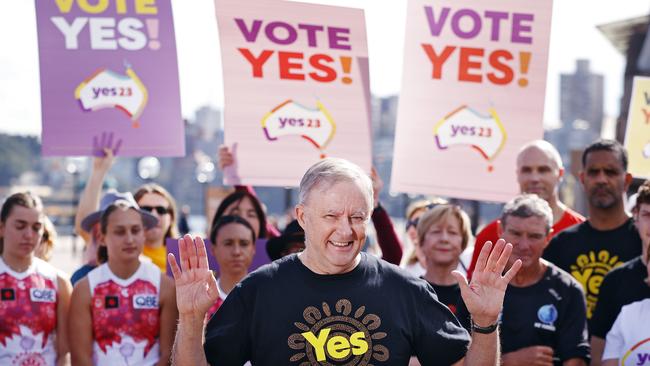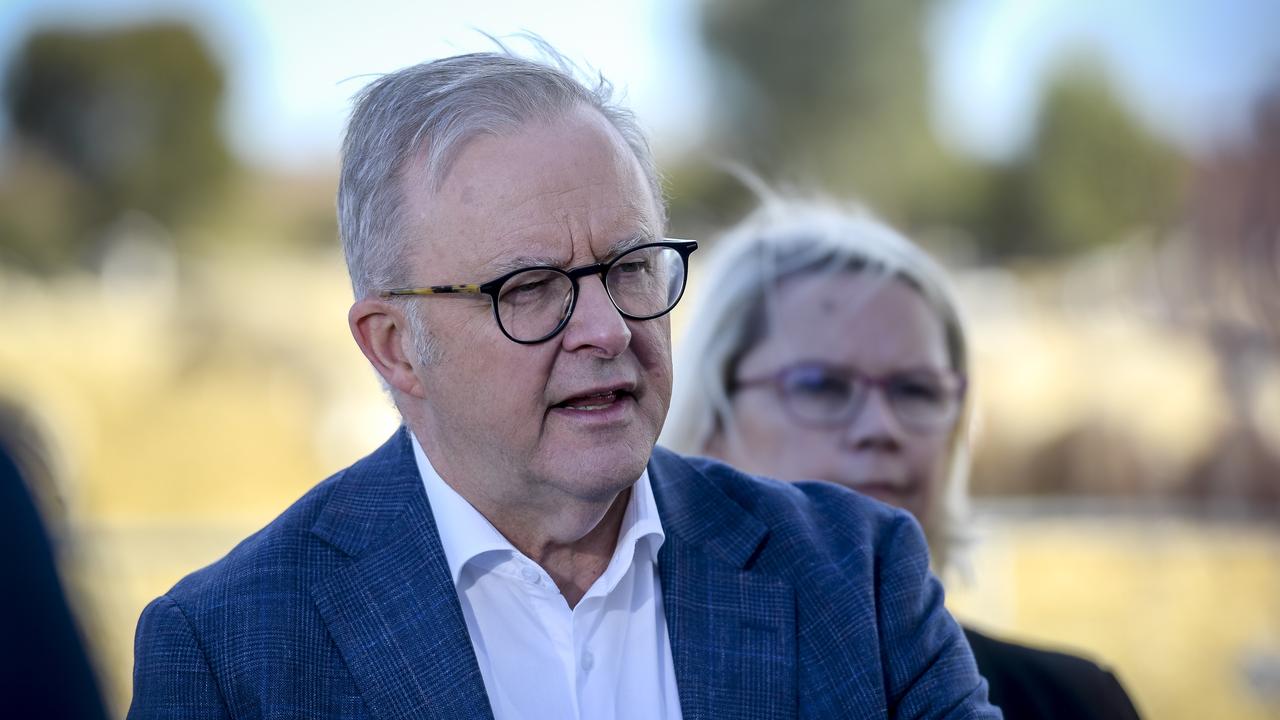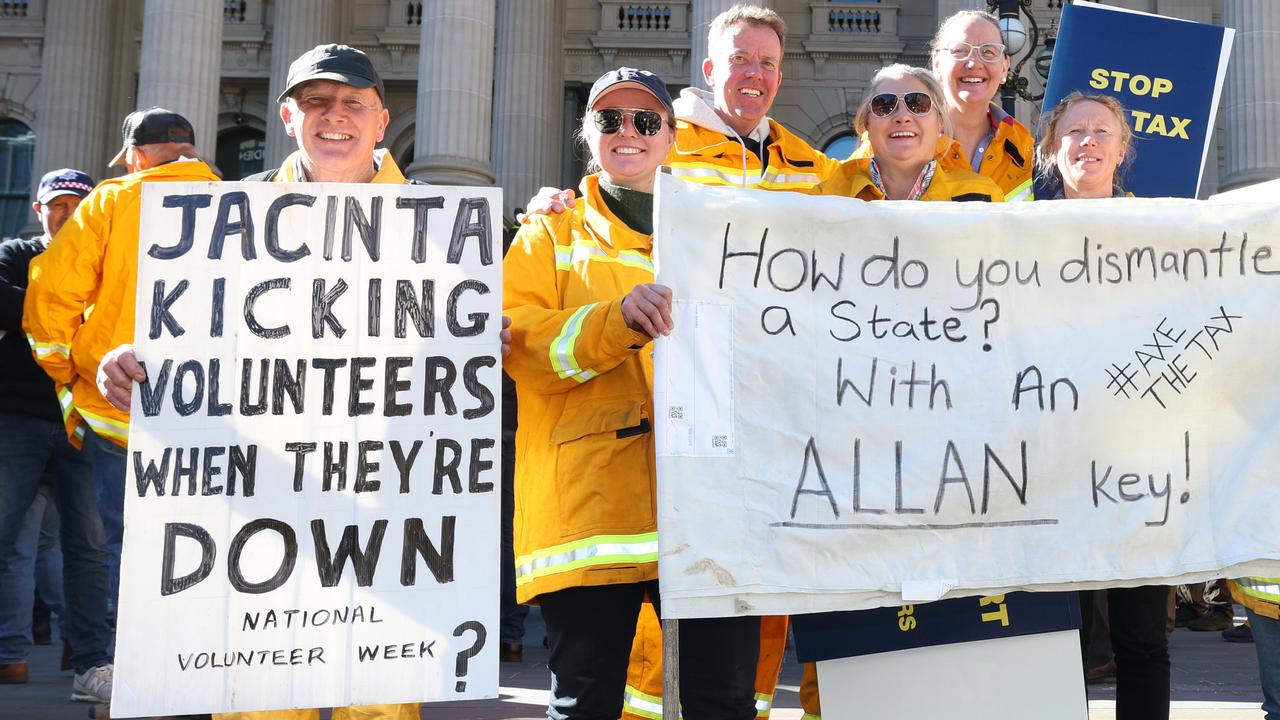Sixteen months in and Prime Minister Anthony Albanese says his government has a “clear narrative”
Anthony Albanese became the nation’s most powerful person in May last year, and now tells The Weekly Times how his government has delivered big wins for ag.

Anthony Albanese became Australia’s most powerful person 16 months ago and since then the government’s duelling careful and reformist agendas have been giddying.
The 60-year-old jokes he is running on “adrenaline” to achieve his big-picture plans, “and the excitement of an opportunity to change the country for the better”.
The trouble is that much of the rest of the country is running on the smell of an oily rag as the government battles to reduce the impact of global inflation, Ukraine war and cost-of-living pressures.
Albanese, however, is a planner and strategist and with a calm demeanour the mantle of being Australia’s 31st prime minister has settled well on the public housing kid from inner-Sydney.
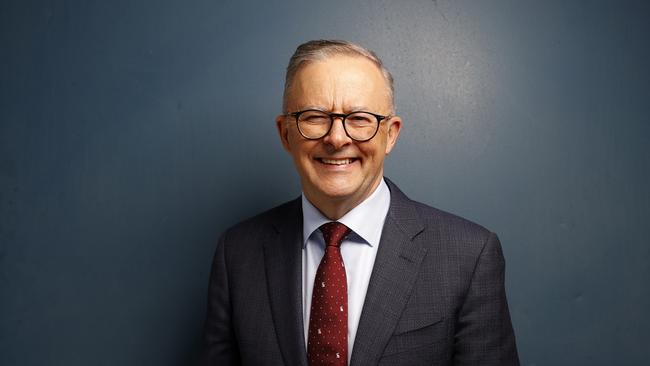
But the tempo of the government, while juggling several balls simultaneously, has left many agenda items untested, unfinished or in limbo, such as reviews into migration and infrastructure.
To be fair, he walked into significant housing and worker shortages, a crippling energy crisis and interest rates hikes.
And to solve these long-term he says he needed “comprehensive plans” to lay foundations for “Australia to be prosperous and successful into the future.”
The problem is that stakeholders feel agriculture will become wedged between Labor’s big ticket policies, that the push for a “healthier” Murray Darling, increased environmental protections, warpspeed energy transition and carbon offsets, for example, may “unintentionally” cut agriculture outputs.
There are also rising concerns from farm groups that Labor’s industrial relations policies, as well as cuts and changes to visa programs, including the axing of the ag visa for increased Pacific workers to reflect a shift in tone of Australia’s regional engagement policy, will do the same.
But the government has also delivered or promised a raft of targeted investments to build on agriculture’s momentum in precision, climate smart and soil health initiatives. Along with sustainable biosecurity modelling, a Future Drought Fund and emergency management measures to help regional communities better prepare for the next fire, storm and big dry.
To prosecute his own case, Mr Albanese believes there is a “clear narrative” to a government he believes is “of purpose and with a good sense of responsibility” and, internally, “functioning extremely well”.
“What gives a country the opportunity to go forward is optimism and hope and a vision for the future,” he said.
He nominates cheaper childcare, housing, climate action, the national reconstruction fund, fee-free TAFE to reduce labour shortages and major reforms that offer migrants paths to permancy, as well as the UK-Australia free trade agreement, as key achievements.
In fact, rebuilding fractured international relations after almost 10 years of Coalition rule and collecting trade agreements have headlined his government.
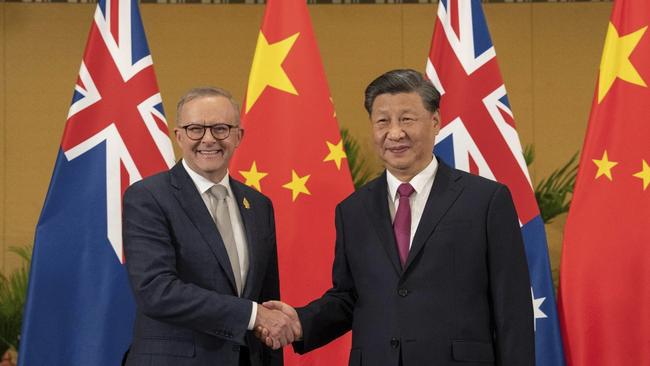
Ahead of flying to Melbourne for the AFL Grand Final, the former regional affairs minister was buoyant after another goal had been kicked in thawing Chinese relations after Beijing lifted its ban on Australian hay exports.
“This is a market that had not been replaced, and so it will make a big difference for farmers and exporters,” Mr Albanese said.
He hopes scrapping tariffs on Australian wine will be next, government insiders hope it will coincide with Mr Albanese’s visit to China this year.
That would also somewhat atone for a two-way deal not getting done with the European Union before July’s NATO summit.
And while Mr Albanese hopes it can be finalised before discussions are deep frozen prior to next year’s European elections, he understands France particularly being over-protective of its “very important agriculture sector.”
His own identity as the son of an Italian migrant exposes a sharpened edge to the government’s geographical indicators stand-off.
“The Europeans are interested in the whole nomenclature, our use of names like feta because of the migrants who came here seeking a better life and who set up many of these businesses,” he said.
“These things can be worked through (but) we will not sign up to an agreement unless we get what we need, to quote the Rolling Stones.”
Mr Albanese also indicated his foot will push down on the transition-to-low-emissions accelerator following the Voice referendum on October 14.
However, agriculture leaders fear financial and logistic burdens might leave many behind in the race to net-zero as they also await the government’s agriculture decarbonisation plan.
Transmission towers planned for farmland under the government’s centrepiece $20 billion Rewiring the Nation clean energy package a reminder that there always must be a loser.
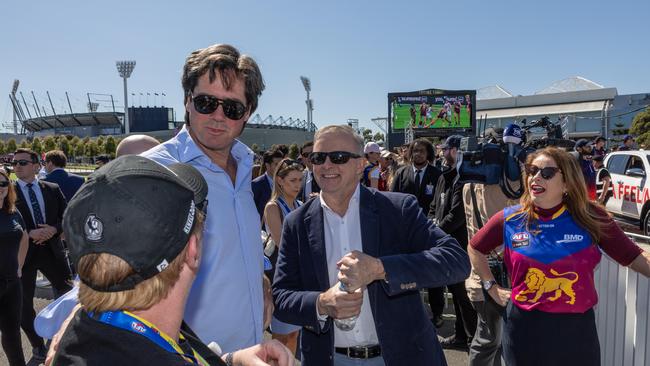
Then there is the Voice referendum.
On the one hand, many farm leaders agree a yes vote could signal to trade partners that Australia is a modern nation with confidence to accept its past.
On the other, Mr Albanese suggests they “shouldn’t conflate” it with fears of what Environment Minister Tanya Plibersek’s looming cultural heritage laws might mean for land use, but it’s easier to say following Western Australia’s botched Aboriginal Cultural Heritage Act.
“The Voice does not have a right of veto of any parliamentary structures or legislation,” he said.
“It’s just like if you’re dealing with the agriculture sector. It’s probably a good idea to go and talk to farmers because … you do get better outcomes when you consult people who are directly affected.”
While industry stakeholders say government ministers and staff are “incredibly accessible” and “good at listening and understanding concerns.”
And while the government flagged agriculture as a priority area, there is “some emerging inconsistency” with cabinet ministers “running their own show” and this not necessarily equating to “cross-government co-ordination.”
The polls are good, energy high and ideas flowing and while Mr Albanese hopes for three terms, challenging times ahead will determine if voters give him a second.
More Coverage
